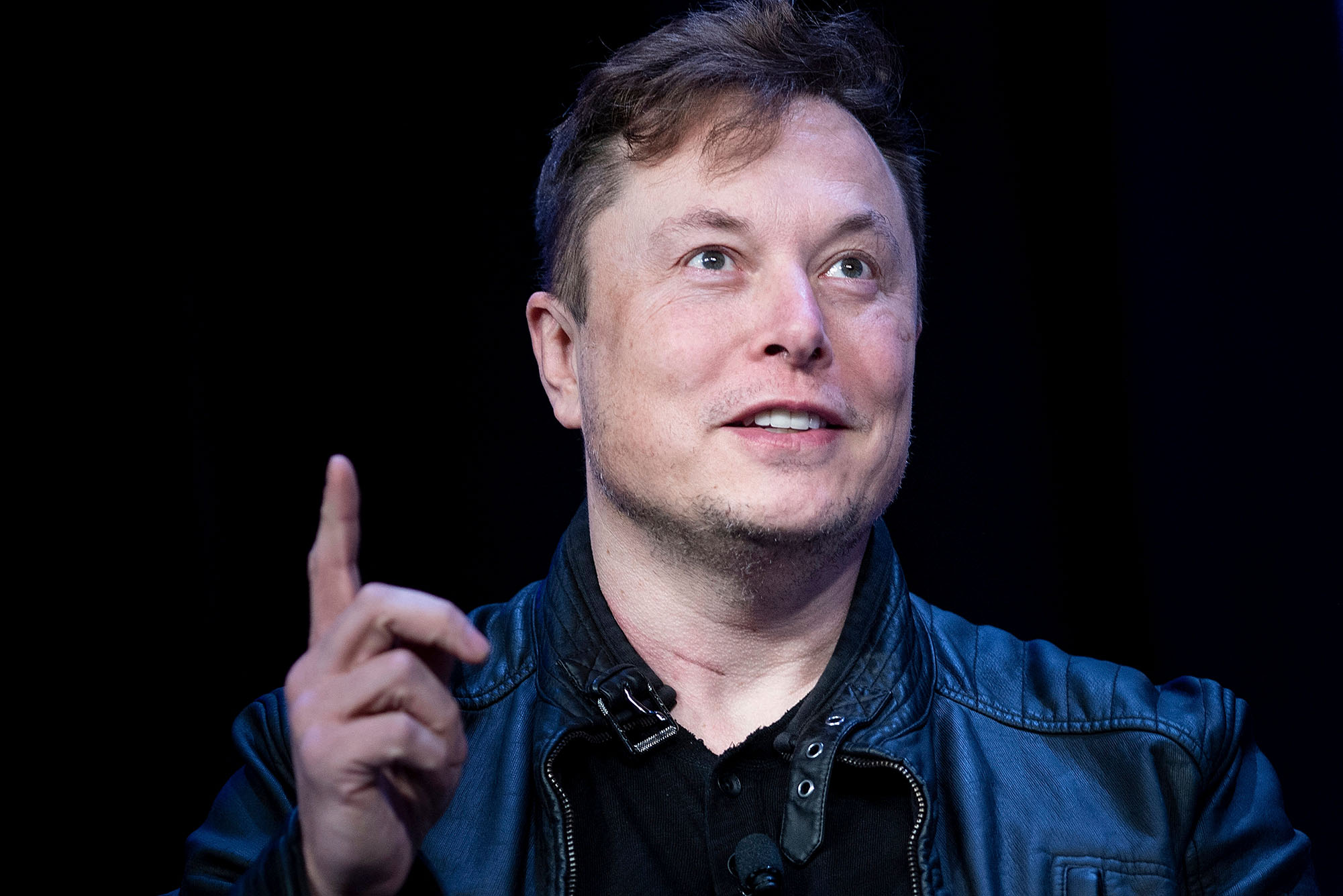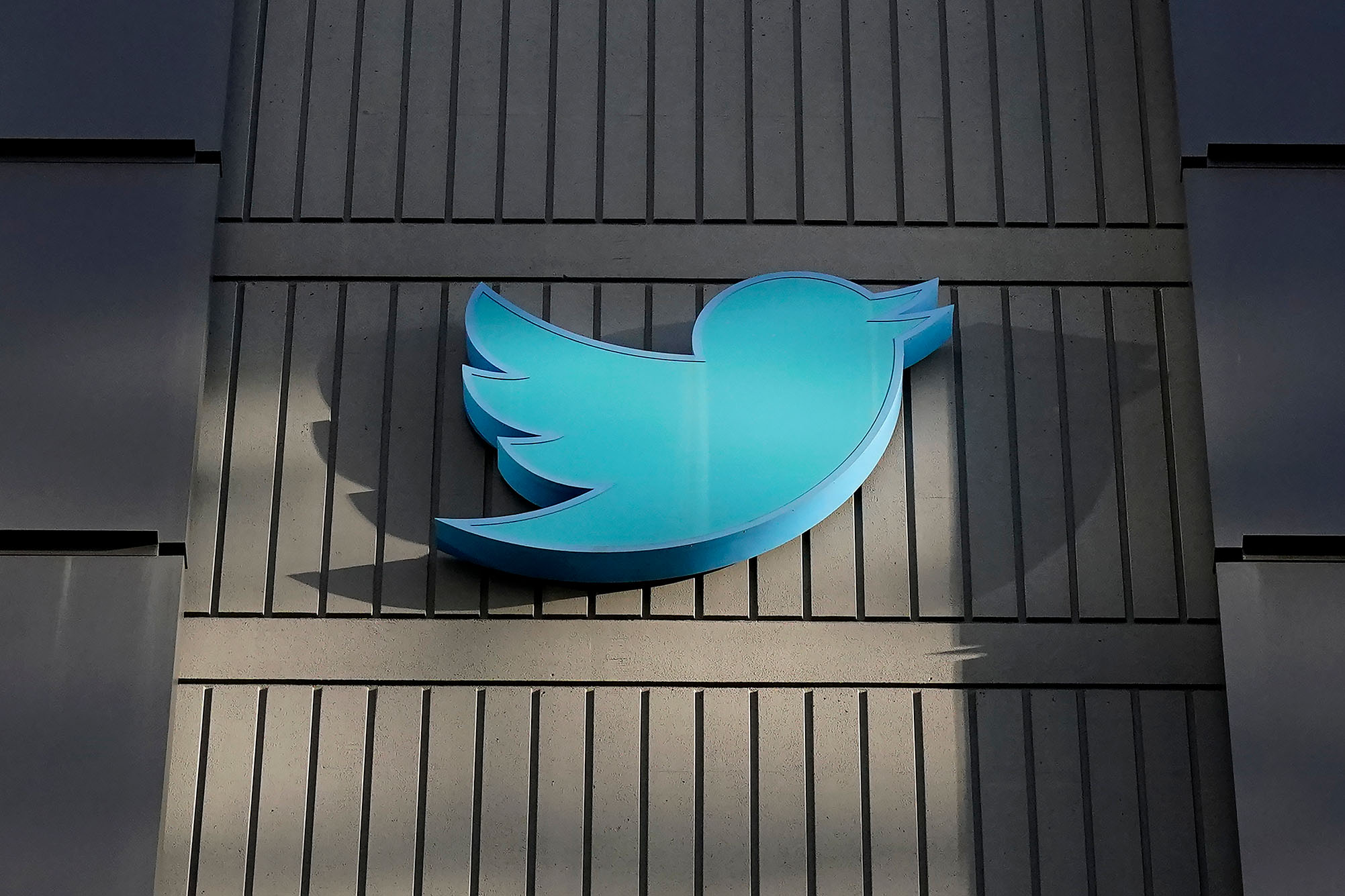Can Elon Musk Fix the Twitter Chaos That He Created?
Questrom’s William Kahn puts the social media giant in crisis and its controversial new owner in perspective

Elon Musk took ownership of Twitter in late October and the rapid-fire and often confusing changes began soon after. Photo by GDA via AP Images
Can Elon Musk Fix the Twitter Chaos That He Created?
Questrom’s William Kahn puts the social media giant in crisis and its controversial new owner in perspective
The first title on William Kahn’s list of selected publications includes the words “toxic organizations,” so the Boston University business professor seemed like the right person to ask about Elon Musk’s handling of Twitter since his $44 billion takeover.
“If I create chaos,” Kahn says, “I myself am the person who then is the best person to solve the chaos, the savior, which creates more chaos, and it never, ever ends, and those people end up destroying organizations.”

Khan is a Questrom School of Business professor and chair of management and organizations and a Everett W. Lord Distinguished Faculty Scholar. His publications list also includes the phrases “negative emotions in everyday workplaces” and “organizational crises.”
Social media giant Twitter would seem to be the definition of an organization in crisis ever since Musk—the CEO of Tesla, founder and CEO of Space X, and the world’s richest man—completed his purchase in late October. He brusquely laid off half its employees, fired more for speaking out, and demanded that those who want to remain commit online to being “hardcore.” He reinstated the accounts of former president Donald Trump and other controversial users, while he decimated the staff devoted to keeping offensive or false tweets off the site.
The chaos has had consequences. The group Media Matters for America reports that in less than a month, Musk has “driven away” 50 of Twitter’s top 100 advertisers, in large part over concerns about security and hateful content. Musk also says Twitter will start charging for the blue, gold and grey check marks for “verified” users (even though fake profiles have shown how easily they can be verified).
Amid this tumultuous transition, many former and current employees and online observers are outraged, experts are wondering if the company is about to crash and burn, and even Musk says bankruptcy is a possibility.
We spoke to Kahn just before Thanksgiving about Musk’s leadership, the company’s future, and the toxicity of it all.
Q&A
with William Kahn
BU Today: Is Musk doing a good job or making really terrible moves?
Kahn: My general sense is that the most effective leaders are the ones who go into an organization they’ve acquired, or when they’ve been hired into as a new leader, and they just discover and learn as much as they can about what works and what doesn’t work well. They honor the expertise and knowledge and wisdom of the people who are clearly effective in their roles. He clearly has not done that. He’s gone in and asserted his own will. It’s not clear if he has a plan or a purpose in particular.
It may be that he’s just very used to being at the center of every organization. In my work on sort of toxic leaders, mostly leaders who insert and assert themselves to be at the complete center of everything, there’s very little way in which they’re collaborating or inviting other people in and honoring their expertise.
The other thing about toxic leaders—and he probably fits this, although this is from a distance, I’ve never spent time with him—is that it’s much harder to create systems and processes that don’t depend on you as the ultimate decision maker and authority and chief strategist. There’s an unconscious piece there, which is, the less I create systems and processes the more people need me as the crisis leader. So if I create chaos, I myself am the person who then is the best person to solve the chaos, which creates more chaos, the savior, and it never, ever ends, and those people end up destroying organizations, because they essentially diminish everyone else around them, and don’t allow them to grow and learn and become capable in their own right.
BU Today: Musk seems to be shooting from the hip, and I would think employees don’t like that when their livelihoods and careers are at stake, and especially when they know the business in ways that he doesn’t.
Kahn: There’s a level of arrogance of any leader who believes that they just know more than everyone else does about the organization and about the technology and about the work. He’s clearly a genius of some sort. His mind clearly works on a different plane than a lot of other people. He sees patterns, he envisions the future, he’s astonishing in that way. He seems to me like an amazing designer of a future that the rest of us don’t glimpse at all.
That’s not the same thing at all as someone who could come in and truly develop the capabilities of others, and coordinate them like a conductor of an orchestra. Great leaders are conductors of orchestras. Everyone else is playing their instrument, and they offer a general sense of what the piece is about. And then they call on different people to take the lead at different times.
He is not that. My sense is that he believes he can play all the instruments, which is, of course, a human folly.
My sense is that [Musk] believes he can play all the instruments, which is, of course, a human folly.
BU Today: There’s one other angle specific to Twitter, which is that this situation is complicated by the political aspect. Essentially, employees are being asked to take sides in a very complex national debate about free speech and hate.
You can navigate that very tricky line if you base it on a core human value that everyone can agree to. The sense, for example, of civil discourse, which is a reasonable human value, right? And if he can, if he and others can make decisions only on that line, that discourse is important and civility is important, that seems to be pretty clear across political spectrums. But the details get very muddy when it then becomes politicized.
Now, that said, Twitter was political before he got there as well. By banning Trump they clearly took a political stance, and it probably alienated some amount of their employees. He’s now coming in and alienating a different amount of employees as well as some of the rest of us.
BU Today: The other part of that question, though, is if you’re working the line at Amalgamated Widgets, none of that really affects you. This is a new issue. There are very few workplaces that would have been in this particular kind of mess 20 years ago.
I think that’s probably right and partly it’s just the fishbowl. Twitter is a fishbowl, because everything is public. Their whole work is to make things public and seeable and observable, so given that, it’s a very different kind of organization, with a very different kind of culture, where everything is magnified, amplified, and potentially destructive.
BU Today: Billionaires like Musk and Mark Zuckerberg and Jeff Bezos have astonishing wealth compared to even a very well-paid employee. Both the money and the media have at the very least sped up the situation, haven’t they?
I would say so. I would also say, part implicit in what you just said, is the idea that people who are not those people have a lot less power and authority, and a lot less voice. Unions are no longer sort of very strong in those kinds of organizations. And so a lot of these guys go unimpeded. There’s very little constraint on them.

BU Today: So let’s talk about the end game. A lot of people have been predicting that Twitter is just going to implode soon—given how many of their required technical people are not there to keep things running, and the political aspects, and everything else. Do you think that’s likely? What would you suggest to make things better? What can Musk do now to stop that sound of wheels heading toward the ditch?
Well, I would say, you know, given that we’re a capitalist society, it all depends on his ability to actually attract investors and attract people who wanna buy their products. I know he just came in and he started charging people, and I think it’s about advertising and different tiers, which is brand-new for Twitter. I think a lot of people are rebelling. What we don’t know is whether there is an alternative to Twitter that people are going to flock to. If so, Twitter is screwed, and if not, Twitter will be fine. It’s really a market question more than anything else.
BU Today: How could Musk ameliorate the emotional damage he seems to have been inflicting on his workforce in just the last few weeks? He continues to push the envelope with them, and it seems like bullying to me, the way he’s been dealing with employees.
I think he’s taking a very harsh stance on what he believes is the right way to move forward both in this organization and probably in any organization. He believes in the illusion of what a strong leader is in his mind—a strong leader is one who essentially says, ‘This is what we’re gonna do’ and forces people to do it. That’s actually more weak leadership than strong leadership. The damage he has done is very unlikely to be undone. And even if he seemed to turn around and show a different side of himself, nobody would trust it.
BU Today: You’re complimentary to him about his vision of the future, but some people identify him as somebody who knows where to put his money, but doesn’t actually know any of the technical stuff.
Again, I don’t know the details. But Tesla’s pretty impressive, SpaceX is pretty impressive. I doubt they were his ideas, but he certainly was able to look at the whole array of what was out there, and he said, ‘Oh, that’s pretty impressive.’ Twitter probably is not as important, like this choice was just some ego trip, just a nutty business idea. Like, he’s nuts to do that. I mean, I can’t imagine he’s gonna make a nickel on this, ever.
Comments & Discussion
Boston University moderates comments to facilitate an informed, substantive, civil conversation. Abusive, profane, self-promotional, misleading, incoherent or off-topic comments will be rejected. Moderators are staffed during regular business hours (EST) and can only accept comments written in English. Statistics or facts must include a citation or a link to the citation.